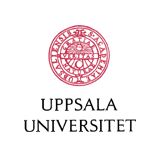|
Effect of Prediction Errors on Adaptive Modulation
Systems for Wireless Channels.
Sorour Falahati,
Chalmers U. of Technology,
Arne Svensson,
Chalmers U. of Technology,
Torbjörn Ekman,
Uppsala University and
Mikael Sternad,
Uppsala University
Radiovetenskap och Kommunikation RVK 02,
Stockholm, June 2002.
-
Outline:
-
The Wireless IP project within the PCC program studies
problems that are crucial in the evolution of UMTS towards high
data rates, as well as in future 4G technologies aimed at
rapidly mobile terminals. The goal is to attain higher
througputs for packet data in particular in downlinks,
without bandwidth expansion and while providing acceptable
quality of service for various classes of traffic.
-
Abstract:
-
We study the optimum design of an adaptive modulation
scheme based on M-QAM modulation assisted by
channel prediction for the flat Rayleigh fading channel.
The data rate and transmit power are adaptedto maximize
the spectral efficiency, subject to average power and
instantaneous BER constraints.
Optimum solutions for the rate and transmit power
are derived based on the predicted SNR as well as the
prediction error variance which are assumed to be
available at the transmitter. The analytical result are
evaluated and presented.
-
Related publications:
-
Journal paper version,
(IEEE TCOM 2004) with further results.
-
PhD Thesis on channel prediction
by Torbjörn Ekman, Oct. 2002.
- VTC02-fall paper
on channel prediction over 0.1-0.8 wavelengths.
-
A system proposal
in which predictive adaptive modulation is used (RVK02).
-
An overview of the Wireless IP Project,
RVK02.
-
Source:
-
Pdf, (228K)
Postscript, (208K)
Poster, in Pdf (660K)
|
The PCC Wireless IP Project
|
Main
entry in list of publications
|
This material is presented to ensure timely dissemination
of scholarly and technical work. Copyright and all rights
therein are retained by authors.
All persons copying this information are expected to
adhere to the terms and constraints invoked by each authors
copyright. This work may not be reposted
without the explicit permission of the copyright holders.
|

